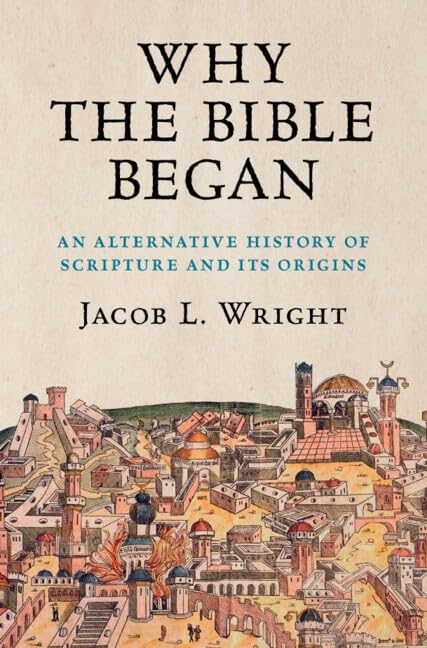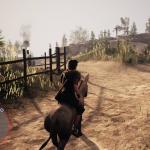Believers in the historic accuracy of the Bible say it chronicles Israel’s history from creation through the destruction of the Second Temple…but does it?

Before we begin this discussion, we need to define exactly what we mean when we say Israel. People familiar with the Hebrew Bible (Old Testament to Christians), will recognize that the first time we encounter the name Israel, we find it attached to Abraham’s grandson, Jacob, his son Isaac’s son. Abraham’s grandson, Jacob, wrestles YHWH or his representative (the translations are not clear). After the wrestling, YHWH tells Jacob that because he has striven with YHWH, his name going forward will be ISRAEL.
The Jewish Study Bible says that “Israel” translates to “El rules” or “El preserves,” where “El” means “god” or “the god.” YHWH has not yet revealed his true name. That will come later with Moses.
What does the Bible say about ancient Israel?
Let’s do a quick review of Israel’s history as presented in the Hebrew Bible:
- YHWH creates the world
- Eve sins, Adam sins, Cain sins
- Creatures of heaven (the Sons of God) impregnate human women
- Their offspring create havoc in the world
- El Shaddai appoints the Godly man, Noah to save mankind
- El Shaddai floods the earth, killing everyone except Noah’s family and some animals
- Noah’s family re-populates the world
- El Shaddai appoints Abraham to be the father of El Shaddai’s people
- Abraham’s grandson, Jacob is appointed to father the Twelve Tribes of Israel
- He does
- Joseph, a poor relation, is sold to Egypt;
- Joseph becomes important in Egypt
- Joseph dies and is forgotten in Egypt
- El Shaddai’s people are now living in the Nile delta, the Land of Goshen
- El Shaddai’s people want to leave Egypt
- Pharaoh says No
- Moses, a person of El Shaddai is appointed to free the people from Egypt
- Moses and Pharaoh argue, debate and trade magic
- Moses prevails and the people leave Egypt
- El Shaddai tells Moses his real name is YHWH
- YHWH’s people wander for 40 years, covering a distance of about 250 miles
- YHWH’s people complain and revolt over and over
- Every time, Moses intercedes in their behalf
- YHWH’s people reach Canaan, the land promised by YHWH
- YHWH tells his people to kill everything that breathes in Canaan
- YHWH’s people begin to conquer Canaan
- Canaan becomes the Nation of Israel and the people become Jewish
- Israel raises Saul, then David, then Solomon as King
- At Solomon’s death, the kingdom is divided in two
- Both kingdoms are conquered first by Assyria, then by Babylon, Persia, Greece and then Rome.
- The Jews begin to leave Israel and settle other parts of the Middle East
- The people of YHWH have come to expect a King to come from YYHWH to deliver the Jews from Roman oppression and usher in a kingdom of YHWH
At this point, the Hebrew Bible concludes and the New Testament of Christianity takes up the narrative beginning some time around 5 BCE to 5 CE.
An ocean of ink has been used to retell, explain, interpret, comment, justify, reconcile, and rationalize these stories with what archaeologists have found to support or not support these versions of historical events.
Another sea of ink has been committed to the study of the texts of the various books of the Bible and to drawing inferences from the texts about how and by whom they were written.
Generally, these studies have focused on writing style, vocabulary, syntax, idiomatic usage and other tells that give hints as to the technical questions regarding these ancient texts of which we have no actual originals, but thousands of contradictory copies made over hundreds of years.
Many writers have found theological meaning in the texts of the Hebrew Bible, but other writers are better able to interpret those findings. My focus here is on history.
A new and exciting theory has been proposed.
A recent book, published by Cambridge University Press, on October 19, 2023, has turned that history completely around.
Why the Bible Began by Professor Jacob Wright of Emory University takes a completely new look at ancient Israel and shows how we have been looking through a clouded lens.

Professor Wright, while acknowledging the groundbreaking work of such scholars as Wellhausen, Friedman, Dever, Baden and so many others, shows first, by exploring the big picture of the world in which ancient Israel existed to the details of how and then, why the Hebrew Bible was written and just as importantly, why it was written the way it was.
Dr. Wright’s thesis is that the Hebrew Bible is a product of Jewish scribes, writing during and after the Babylonian captivity. He shows how these scribes were actually fabricating a history of a people without a nation, without a king, without a land.
What does Israel become?
The book shows in a step-by-step manner, how the Hebrew Bible reacts to the defeats of YHWH’s people which occur time and time again (even after the Hebrew Bible is written) and how the need for a national identity for a people without a nation was important. It gives the Jewish people something physical and tangible to hold on to as they navigate an always hostile world.
Israel at this time is only a people, not a nation with a land and a king. The Hebrew Bible is, as Dr. Wright shows, not an accurate (this was never the intent) history of Israel, but a teaching tool for the Jewish people to understand themselves and their peoplehood for all ages to come. This was a noble enterprise on the part of these scribes. It is through their work that the Jewish people truly become the “People of the Book.”
What else can we take from this today?
A number of conclusions and inferences might follow:
- The Hebrew Bible is a teaching tool for the Jewish people, not a history book.
- YHWH’s people, forcefully removed from their (YHWH-given) homeland, needed a tangible and sacred object as a reminder of their important place in the world.
- That sacred object is the scriptures that became the Hebrew Bible.
- Religions arising from Judaism have found the Hebrew Bible to be useful in making points about their own faiths, even if these points are obscure or do not actually follow.
- Religious people in all ages since the Hebrew Bible was produced have misused it to control the behavior of people for whom it was never intended.
But it seems that there has never been a time when religious people have failed to use religion to exert power over others.
Never.














